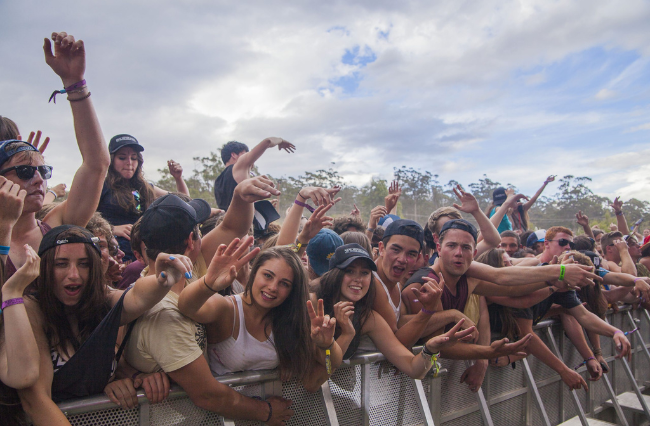“Our privacy is in jeopardy.”
This warning comes from Natalie McKenna, lecturer in public relations at La Trobe University, who says that “oversharing” in social media is potentially harmful to our safety and privacy after the fallout of the Facebook-Cambridge scandal.
The privacy debacle struck after whistle-blower Christopher Wylie exposed former political consulting firm Cambridge Analytica. The firm harvested the data of nearly 87 million Facebook users through Aleksandr Kogan’s personality test. The firm worked with the Trump campaign and it was accused of influencing the results of the 2016 US presidential election and the Brexit vote.
In what experts describe as an ‘awakening’, concerns were raised over the potential manipulation of information and the inherent privacy issues associated with social media.
McKenna believes that the scandal should inspire users to learn how to stay safe and be more vigilant in using social media.
“Now that Facebook has been exposed due to Cambridge Analytica, users are more aware of the dangers. Those of us that work in social media are not surprised at all and knew this was happening,” she said.
“It is up to individuals to learn how to stay safe on social media.”
What is social media mining?
The concept of data study stretches across a 250-year history. However, it wasn’t until the 1990s that the term ‘data mining’ circulated in communities when companies could expand their customer base using computer software.
In almost every online transaction, conversation or activity, a person can leave breadcrumbs of digital data.
“Google knows if we go to the football match every week and can therefore easily identify which football team we follow. Google knows if we are standing or sitting due to Geo Tracking,” McKenna said.
“They could potentially advertise the bar at the football ground they know we are at through our Facebook feed.”
The amount of raw data flowing through the internet is staggering. According to business intelligence Domo, every minute in 2017 yielded 46,740 Instagram photos, 74,220 Tumblr posts, 456,000 tweets, and 4.1 million YouTube views.
However, data alone cannot tell a story and it is of little value without action.
Social media mining is the act of analysing trends in user behaviour and processing them to extract relevant and usable information. Companies that monitor media data convert the white noise of everyday online chatter into detailed profiles that are used by businesses to form decisions for their customers.
Dr Saalem Sadeque, lecturer in marketing at CQ University, notes that companies are now investing in ‘big data’ mining through advancements in cognitive technology.
“There are now a number of highly sophisticated software, known as predictive analytic software, which can help predict an individual’s future behaviour or modify behaviour,” he told upstart.
How is my data being used?
While different organisations vary in their motives and use of data, McKenna points out that the free data we give away to social media platforms is a gold mine for advertisers.
“The information we provide is valuable and worth a lot of money,” she said.
Data mining is commonly used for targeted advertising as it can help expand ‘brand awareness’ or encourage users to engage with a website, campaign or cause. In exchange for advertisements, personal information and user generated content, social media services are offered free.
Dr Paul Harrigan, senior lecturer in marketing for the University of Western Australia, emphasises that data is the foundation of modern marketing.
“Data mining is very valuable to businesses but also to consumers who are going to receive advertising and marketing efforts,” he told upstart.
“If marketing isn’t personalised based on data, it doesn’t work.”
Lenders can turn to social media to review their client’s history or check for inconsistencies on applications to help them measure their creditworthiness. Policing efforts also benefit from online activity by flagging relevant keywords in posts and comment threads to detect and foresee incoming criminal threats.
In human resources, data is used to filter through pools of applicants and aid employers in making guided decisions to acquire appropriate talents in a short period of time.
Data mining also works for streaming services such as Netflix and Spotify, who create personalised lists of movies, shows and songs based on choice patterns and preferences through artificial intelligence and machine learning.
Trust, privacy and the ‘online self’
Data mining is common practice for a lot of organisations, but the Facebook-Cambridge incident became a catalyst for modern discourse because it crossed over to contemporary politics.
The discussion around the loss of trust in Facebook stemmed from their lack of vigilance in taking action, suggesting how easily third-party organisations can creep their way into our personal information.
But while there is wisdom to be gleaned, privacy experts suggest it’s a disaster several years in the making after cautioning users over the potential malpractice of data giants.
The European Union has responded by enacting the General Data Protection Regulation. A law that has recently been put into effect that enforces tighter measures for all would-be data miners to ensure that personal data cannot be shared without a person’s consent.
However, through his research, Sadeque suggests that the Facebook-Cambridge incident did little to sway users from leaving the platform given their dependence of their ‘online self’.
“Facebook users are strongly tied to the website emotionally. It has become part of ones self,” he said.
“They are unlikely to delete their Facebook account despite knowing their data has been breached.”
While social media has enabled people to “bridge distances”, Harrigan acknowledges that these “paradigm changing inventions” must take more stewardship in being responsible its users.
“Social media is so pervasive in our life these days that they do have a responsibility beyond just letting user-generated content drive the discussion,” he said.
“They do have a responsibility to, for example, fact check and call out inappropriate behaviour and inaccurate information.”
Haj Songcuya is a third year Bachelor of Media and Communications (Journalism) student at La Trobe University. You can follow him on Twitter @HajSongcuya







